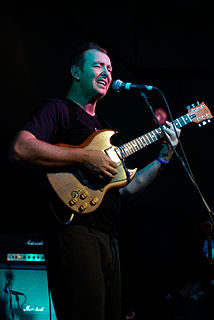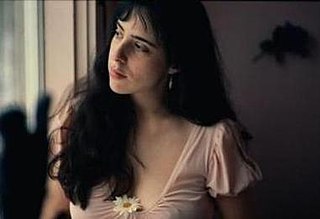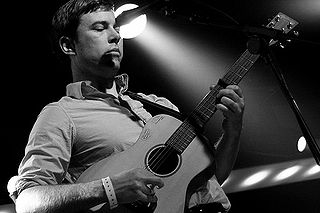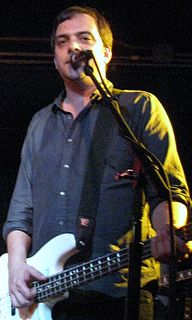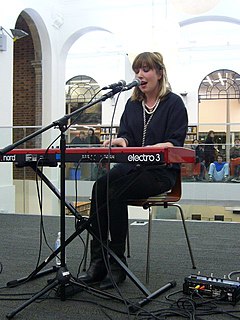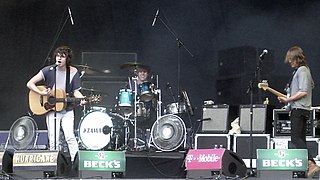A Quote by Stephen Malkmus
The narrative songs were well-written, like an article in The New Yorker. They're nice and pat. They're more like I'm just showing I can do that when I write a song like that. It's not my true calling.
Related Quotes
I haven´t written on piano since It Bites. You can tell my songs that I´ve written on piano with It Bites cause they all go like "wrooash", like Old Man And The Angel and Calling All The Heroes and songs like that. It all tends to happen very quickly, I get two thirds of the song within five minutes and then spend rest of the time trying to ruin it in my head, and then I go back to where I was from the beginning.
There are no limitations with a song. To me a song is a little piece of art. It can be whatever you like it to be. You can write the simplest song, and that's lovely, or you can just write a song that is abstract art. ... A lot of my songs are very serious, I'm like dead serious about certain things and I feel that I'm writing about the world, through my own eyes. ... I have a love for simple basic song structure, although sometimes you'd never know it. ... Most of the songs I wrote at night. I would just wake in the middle of the night. That's when I found the space to write.
My best songs were written very quickly. Just about as much time as it takes to write it down is about as long as it takes to write it...In writing songs I've learned as much from Cezanne as I have from Woody Guthrie...It's not me, it's the songs. I'm just the postman, I deliver the songs...I consider myself a poet first and a musician second. I live like a poet and I'll die like a poet.
I think from a major-label perspective, if you were on the flip side of things and that's the world you were used to working in, your interpretation could be, "Oh, they're having trouble writing songs," when really it's like, "No, I'm not ready to write songs, I don't want to write a song right now, if I did write a song, it would be forced."
I was just fooling around with the piano and Todd [Phillips] was like, 'Hey there's a great spot in the movie [The Hangover] where we need a little bit of a breath in the narrative. You should write a song and stick it in there.' And I was like, 'Well, what should the song be about?' And he said, 'The tiger.' 'Oh, okay.' So I went off and I wrote this song. I came back and Todd and I tinkered with it a little more and then we shot it right then. It all happened in a day.
I feel like there's already a written narrative going on everywhere. All the different situations and realities you're in, like words floating by. It's something that I didn't start thinking about until recently, but you can hitch that ride, that narrative that's already been created. You just have to read it and write it down.
When I read the article [in The New Yorker] by David Grann, I was very struck by people responding to the article, of people thinking I was such a hero and what a wonderful person I was, and I didn't feel that at all. I felt like I had very much, like Todd [Willingham], taken a path of self-preservation.
Maybe someday there will be a song I write that I never let see the light of day because I don't want it to be uncontainable and have to play it again. And I have written songs like that that are just for me. It's like writing a letter to someone you're angry at but never sending it and just putting it in a drawer.
I wanted to try to make songs that worked as songs, not just as productions. People wanted me to do a solo acoustic session, they were like "Can you play song on the piano?" and I was like "Not really. It doesn't really work." I wanted to write songs that would work in a variation of instrumentation.
It's just like an idea, like a chorus, and then we just jam on it - it happens in loads of different ways. The best songs I find always come from the subconscious, like when you don't think. Not to be pretentious about it, but usually songs just blurt out rather than thinking about it. I never write lyrics and then do a song, I find that really hard - that's like a real skill.
The thing that bothers me is that it seems like all the sensitive stuff I write just goes unnoticed . . . the media doesn't get who I am at all. Or maybe they just can't accept it. It doesn't fit into those negative stories they like to write. I'm the kind of guy who is moved by a song like Don McLean's "Vincent," that one about Van Gogh. The lyric on that song is so touching. That's how I want to make my songs feel. Take "Dear Mama" - I aimed that one straight for my homies' heartstrings.
Those situations were just taking over my entire life. It was fun to write in a way, because it helped me take a really bad situation and a really sad situation and make beautiful songs out of them. When I got half of the song written it was like, "Oh, this is great." It was like the one thing that was making me happy again.


